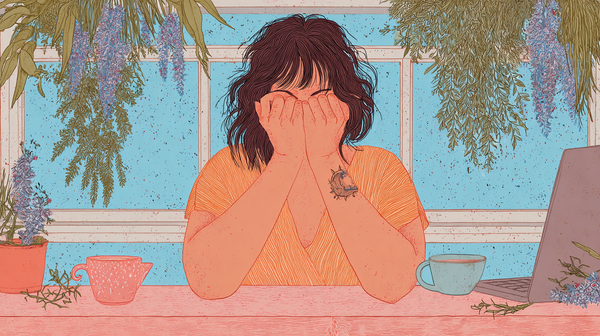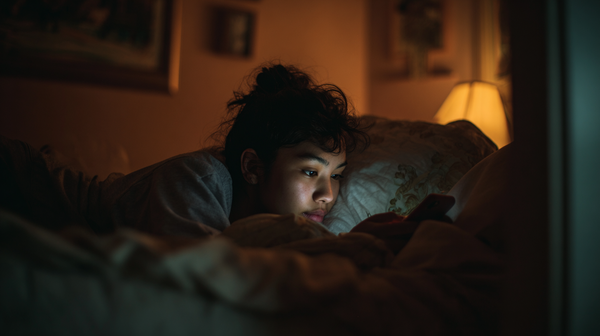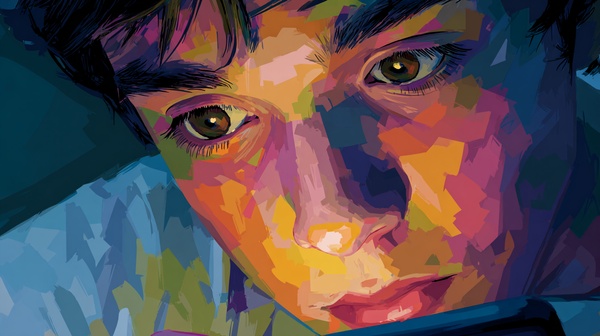Therapy's Black Market: Inside the Coachfluencers Selling Unlicensed Healing on TikTok and Instagram
Unlicensed "trauma coaches" are turning TikTok and Instagram into therapy's grey zone-selling healing where systems fail. We map the risks, the rules, and the rise of coachfluencers.
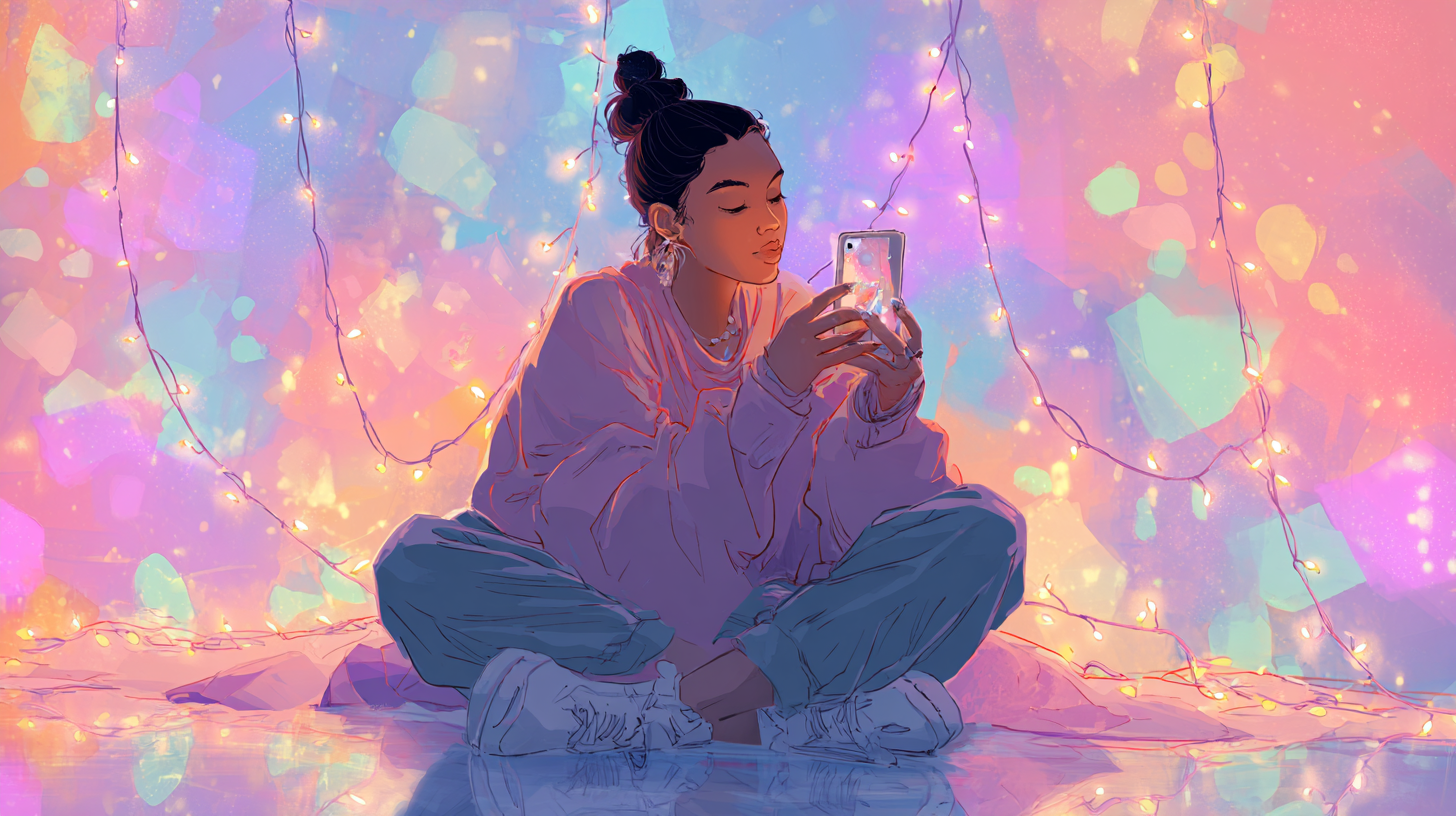
Open Instagram and you'll see her: cross-legged on the floor, fairy lights in the background, voice low and steady. "If you've been struggling with anxiety," she whispers, "your nervous system is crying out for regulation." A swipe takes you to a £297 "shadow-work bootcamp" promising to heal your childhood wounds in four weeks flat. At the bottom, a disclaimer: This is not therapy. But every frame insists otherwise.
Welcome to the therapy grey zone-the black-market of healing. Here, influencers with no clinical training are selling trauma courses, nervous-system workshops, and "healing containers" dressed in the language of psychology. They call themselves coaches, guides, facilitators. Their followers call them lifesavers.
It's not hard to see why. Therapy has become a luxury. In the UK, a single private session runs anywhere from £50 to £138, often higher in London. In the U.S., $100-$250 is the going rate. Even public systems strain: NHS Talking Therapies aims for six-to-18-week wait times, but in reality, many are left adrift for months. For someone spiralling, coachfluencers feel like a quick escape: they are cheaper, faster, always online.
But what looks like access can also look like risk. Without regulation, these creators operate in a twilight space: not therapists, but not not therapists either. They talk trauma. They promise healing. They flirt with the clinical. And regulators, only now waking up, are asking the obvious: what happens when a coach tries to treat a wound too deep?
👇👇Podcast version below! 👇👇

When Coachfluencers Cause Damage, Not Healing
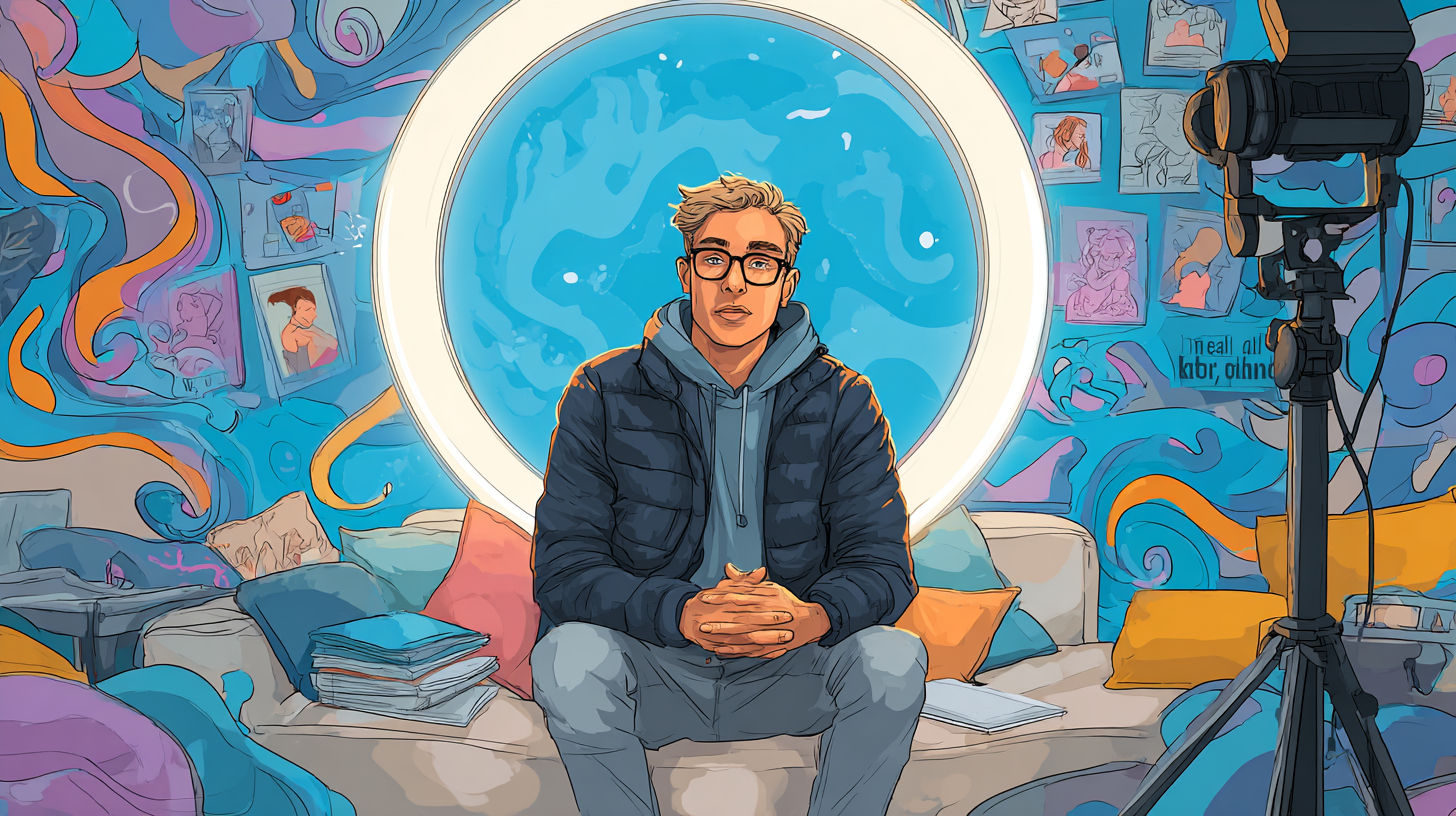
This isn't whistleblowing-it's real harm.
These aren't abstract risks floating in the algorithm. They are hospitalizations, financial losses, emotional collapses, and in some cases, outright abuse. When coaching becomes therapy without the scaffolding of training, accountability, or regulation, the fallout is severe-and recovery far murkier than it would be inside a regulated system.
1. Hospitalized After "Deep Trauma Work"
In Utah, a joint ProPublica/The Salt Lake Tribune investigation found that unlicensed life coaches pushed clients into "deep dives" on trauma without clinical safeguards. The result: multiple clients spiraling into emotional crises so severe that four of them ended up hospitalized with suicidal ideation. Without crisis protocols or supervisory oversight, what should have been support became a trigger for collapse.
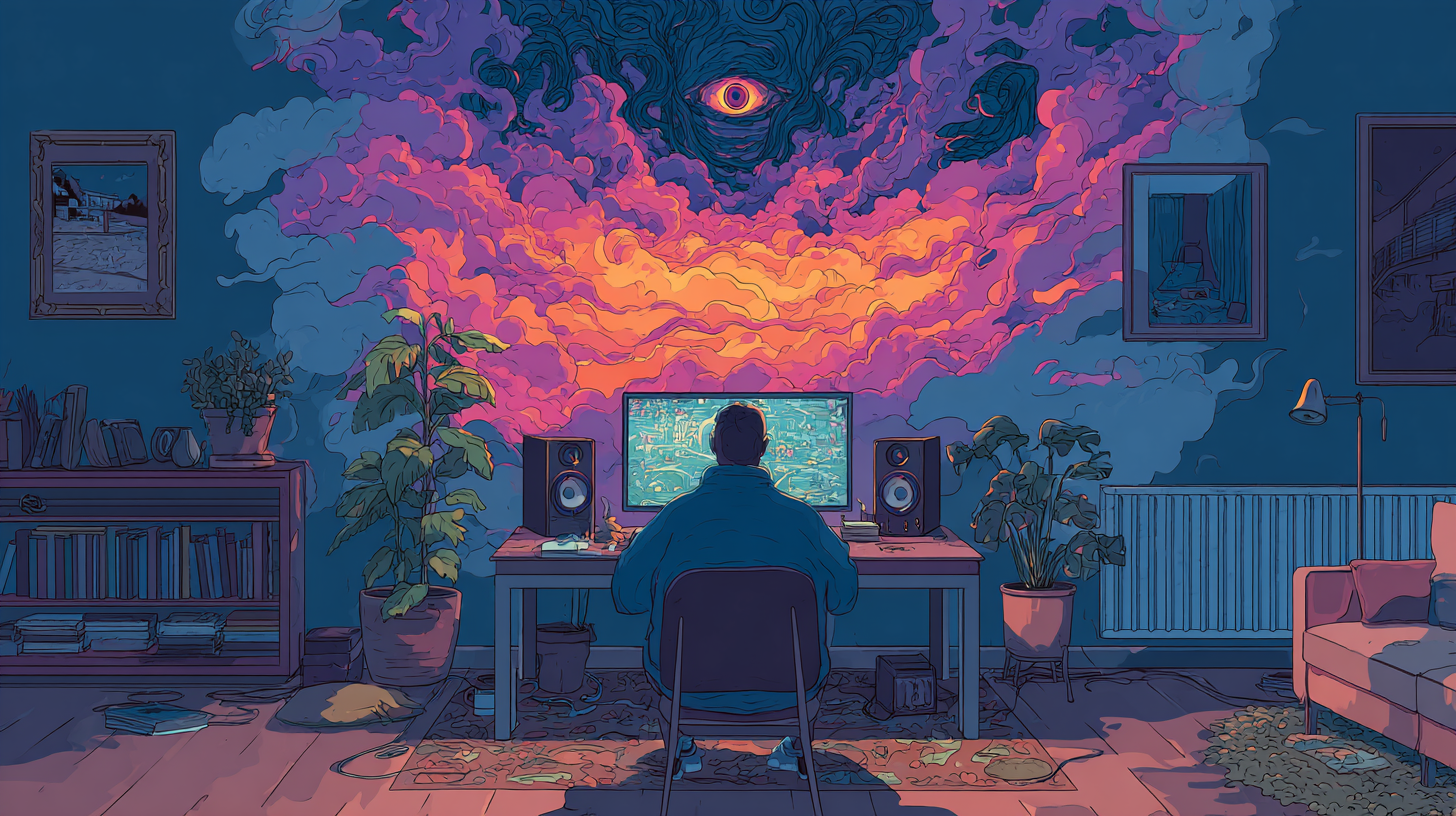
2. Financial Exploitation & Manipulation
Across the U.S., cases of life coaches exploiting clients have surfaced in court. One California woman sued her coach after being convinced to sign over her house to his nonprofit. In Connecticut, a coach stole money from a client with a traumatic brain injury. In Nevada, another misused client investment funds at casinos. These are not "growth journeys"-they are financial scams dressed in therapeutic language.
3. Emotional Distress Disguised as Healing
A 2025 study published in The Cognitive Behaviour Therapist examined experiences of OCD clients who sought coaching. Some described their experiences as "cult-like"-emotionally intense, manipulative, and ultimately disempowering. Instead of therapeutic breakthroughs, they encountered coercive group dynamics that compounded their distress.
4. Abuse Behind the "Coach" Mask
Jodi Hildebrandt, once a licensed counsellor, rebranded as a life coach after her license was revoked. She went on to be convicted in 2023 for abusing her business partner's children-a chilling example of how removing regulatory oversight doesn't erase risk, it multiplies it. Her story is a stark reminder that a new title can't cover the same dangerous patterns.
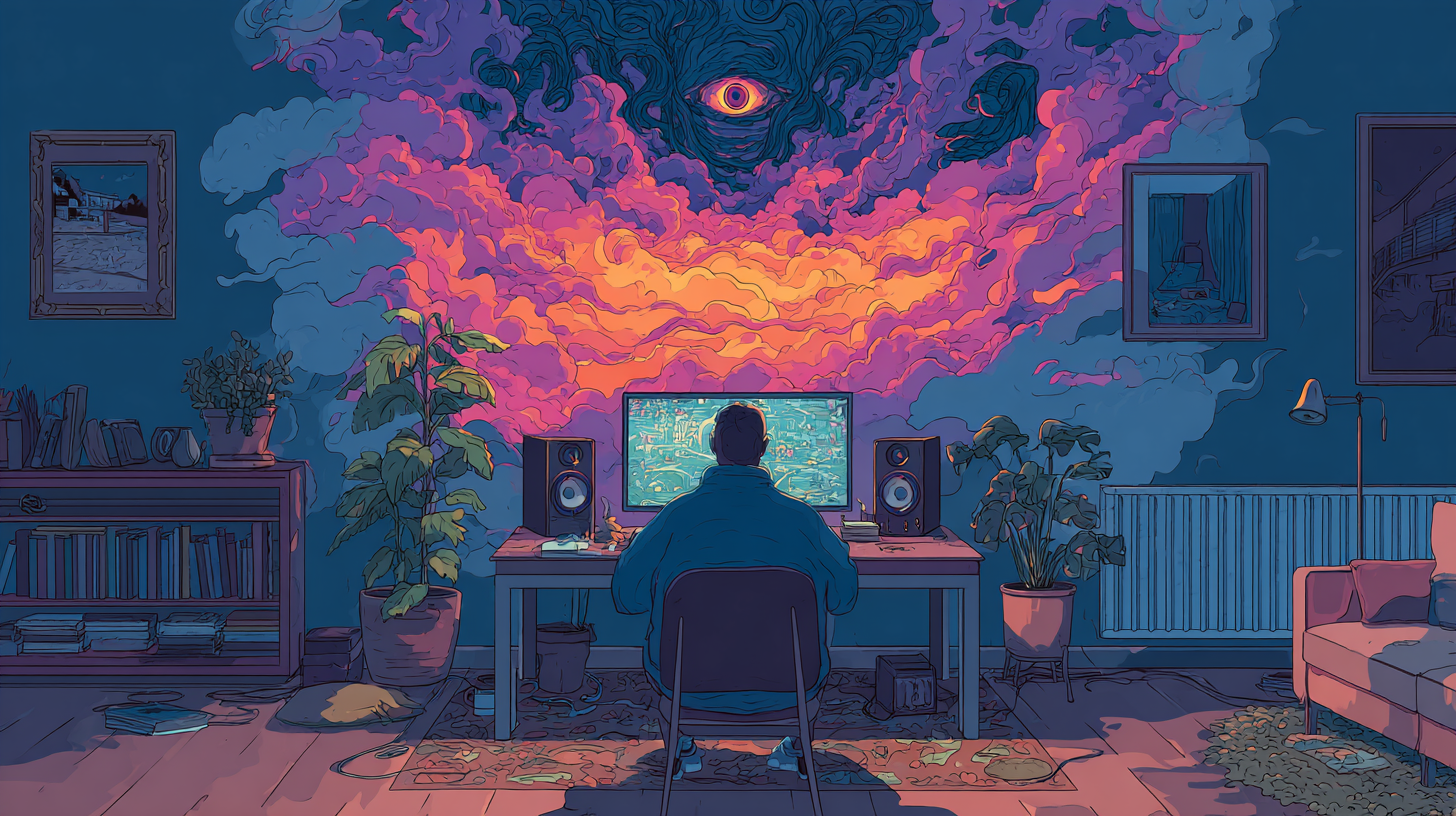
Why Recovery Isn't Simple
In regulated therapy, there are guardrails: crisis plans, ethics boards, supervision, complaints procedures, insurance. If harm occurs, there is a pathway to accountability and redress.
In the coachfluencer grey zone? None of that exists. No licensing body. No clear complaint routes. No crisis protocols. And for clients who confuse coaching with therapy, disentangling themselves can be psychologically draining and financially devastating.
The takeaway isn't that all coaches are predatory. It's that harm is real, and recovery is harder without regulation. Until clearer lines are drawn-by regulators, by platforms, and by professional bodies-the black market of healing will continue to thrive in the shadows, with the most vulnerable paying the highest price.
When Therapy Costs a Fortune, TikTok Offers a Discount
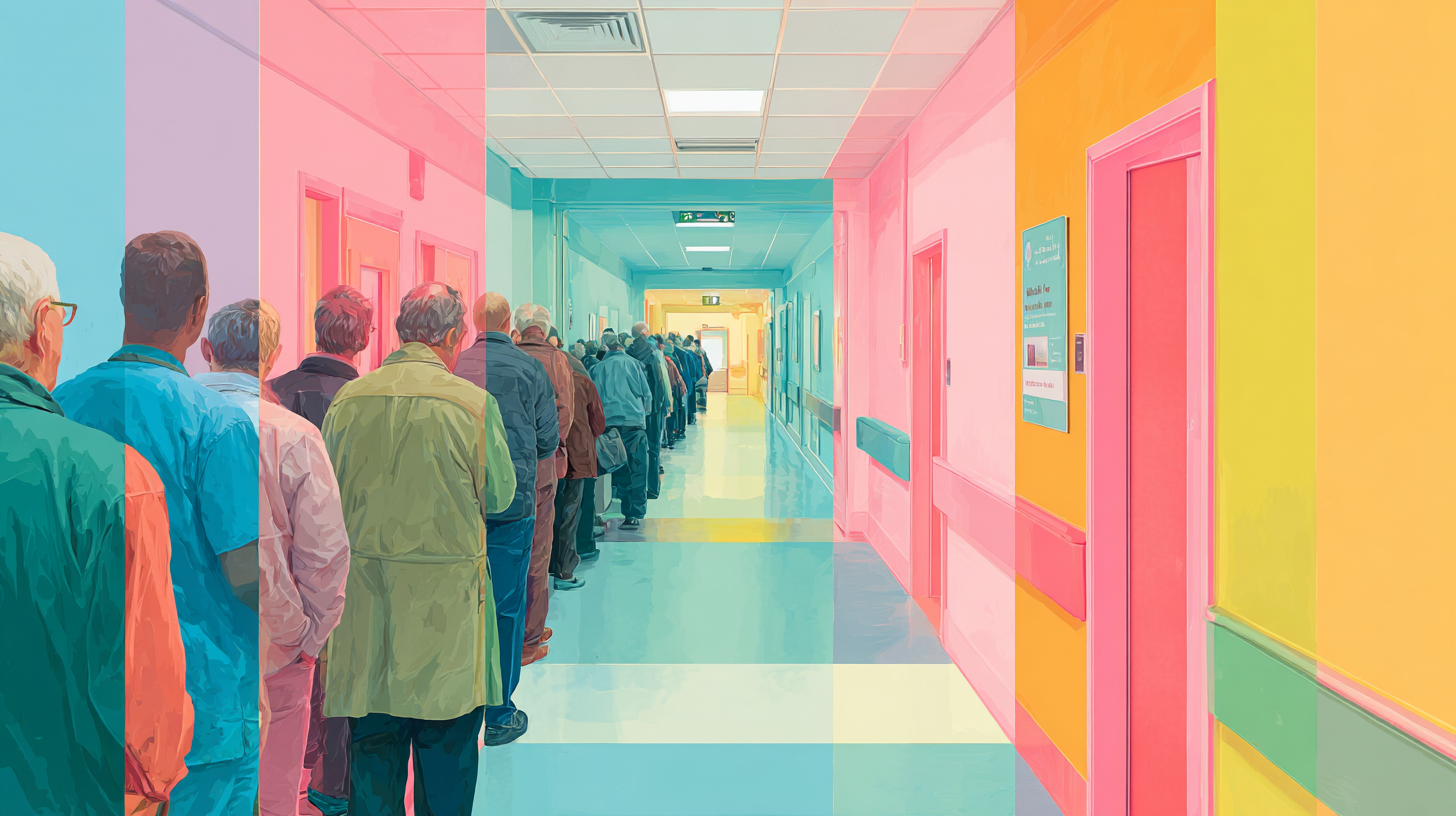
Mental health care has always been a two-tier system: those who can pay, and those who wait. But in 2025, the gulf between the two has widened into something more like a chasm.
In the UK, even with NHS Talking Therapies aiming to see most patients within six to 18 weeks, many find themselves waiting months-or falling off the list entirely. Private therapy is quicker, but not exactly accessible.
This gap between need and access has created fertile ground for something else: the rise of therapy's black market. Coachfluencers slide into the space where institutional care fails-offering group programs, four-week intensives, and online bootcamps at a fraction of the price. For the burned-out barista or the graduate drowning in student loans, £300 for a "shadow work course" feels almost rational compared to £600 a month for therapy.
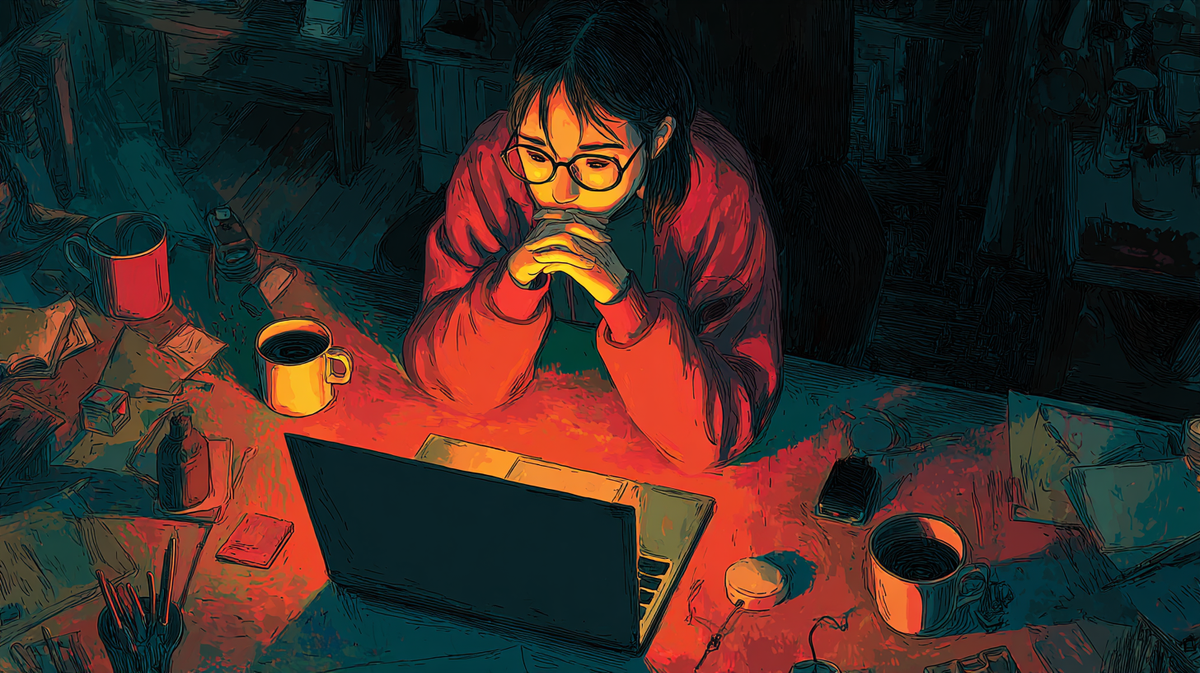
And then there's the immediacy. Coachfluencers are available in real time-answering DMs, commenting back, promising "support" without waitlists, referrals, or gatekeepers. The intimacy is intoxicating. In a world where healthcare feels like bureaucracy, a direct message from someone who "sees you" feels like medicine.
But here's the catch: these aren't therapists. They're entrepreneurs in the creator economy, packaging psychological jargon into digestible, marketable slices. They promise healing because the system can't deliver it fast enough. And that is the danger. When desperation meets influence, people start buying cures that were never meant to exist.
Fairy Lights, Soft Voices, Big Promises: How Coachfluencers Sell Healing
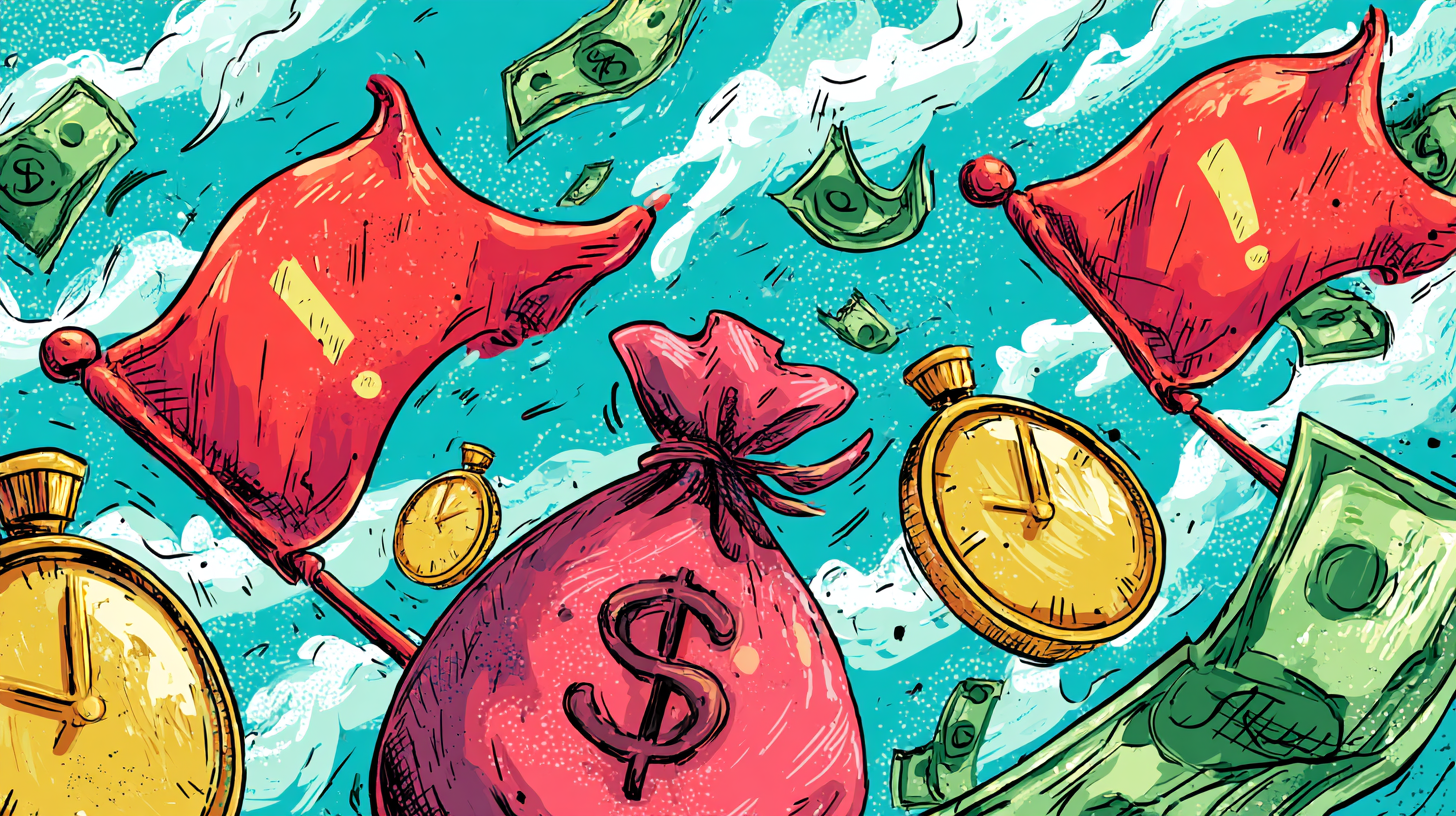
Coachfluencers don't look like therapists. They look like your cool older sister, your best friend after a yoga retreat, the influencer whose captions make you feel less alone at 2 a.m.
They sit on unmade beds with ring lights, or in sun-drenched kitchens sipping oat milk lattes. The vibe is deliberate: casual, intimate, safe. Their captions read like whispered confessions. "If you always feel anxious in relationships, that's not your fault-it's your nervous system stuck in fight-or-flight." Swipe for the solution: a six-week nervous system reset, yours for just $100.
The toolkit is familiar. They borrow the vocabulary of psychology-trauma, attachment styles, inner child, shadow work-and remix it with wellness aesthetics. They promise "healing spaces," "containers," "integration circles." They speak of holding you, seeing you, guiding you through wounds you didn't even know you carried.
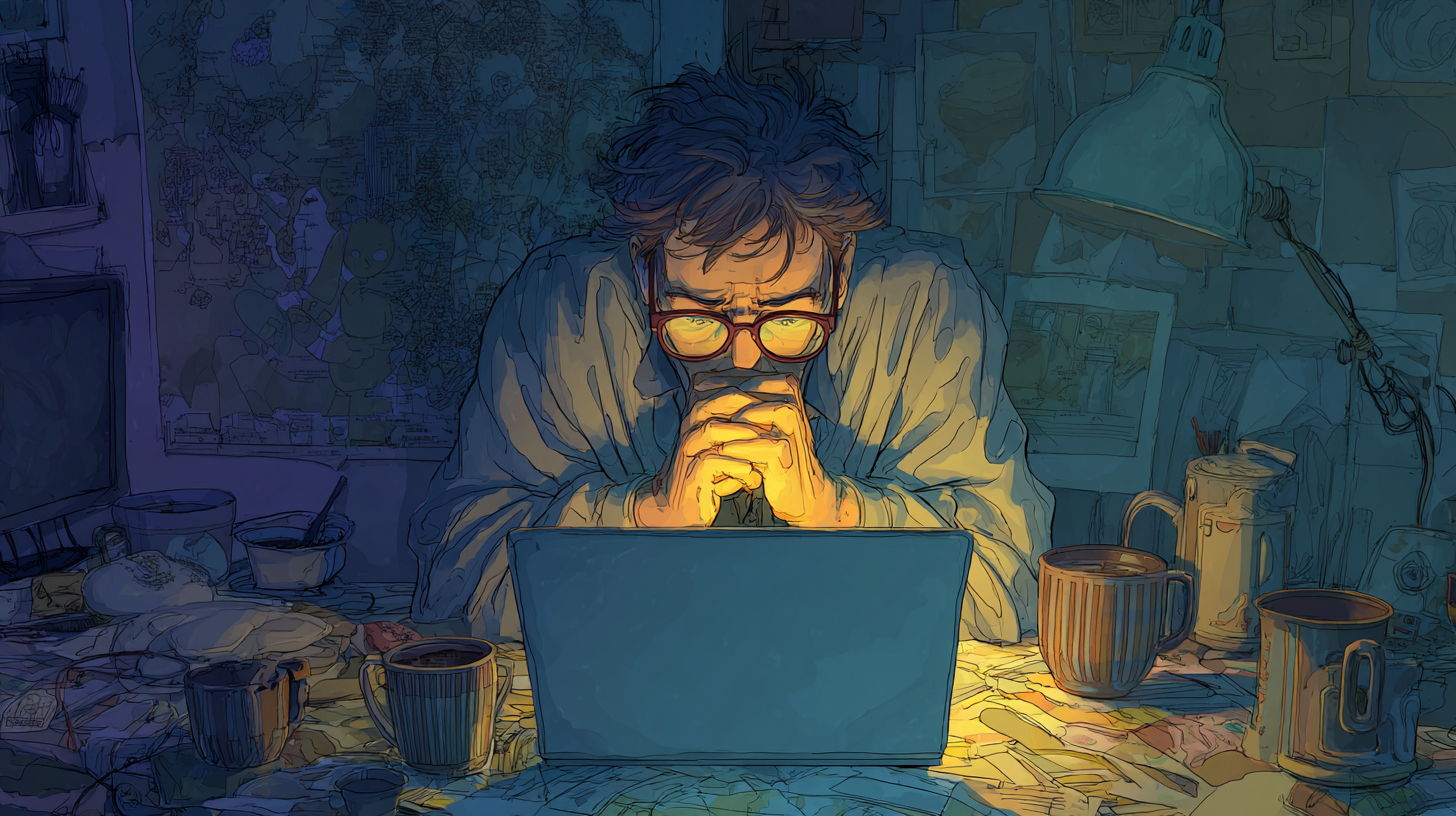
It's seductive because it feels personal. Licensed therapists operate in structured sessions, behind clinical language and boundaries. Coachfluencers blur those boundaries by design. They answer comments. They send voice notes. They make TikToks about their own "healing journeys," folding their struggles into your own. That mutual vulnerability becomes a selling point.
And then comes the funnel. A free Instagram Live leads to a PDF download. The download leads to a group challenge. The group challenge leads to a premium course-sometimes costing more than a month of traditional therapy. But unlike therapy, the offer is wrapped in urgency: Spots are limited. Enroll now. Your healing can't wait.
This is therapy repackaged as lifestyle content. It's mental health turned into merch. And when you're desperate, it feels less like marketing and more like salvation.
Licensed to Heal? Not Exactly
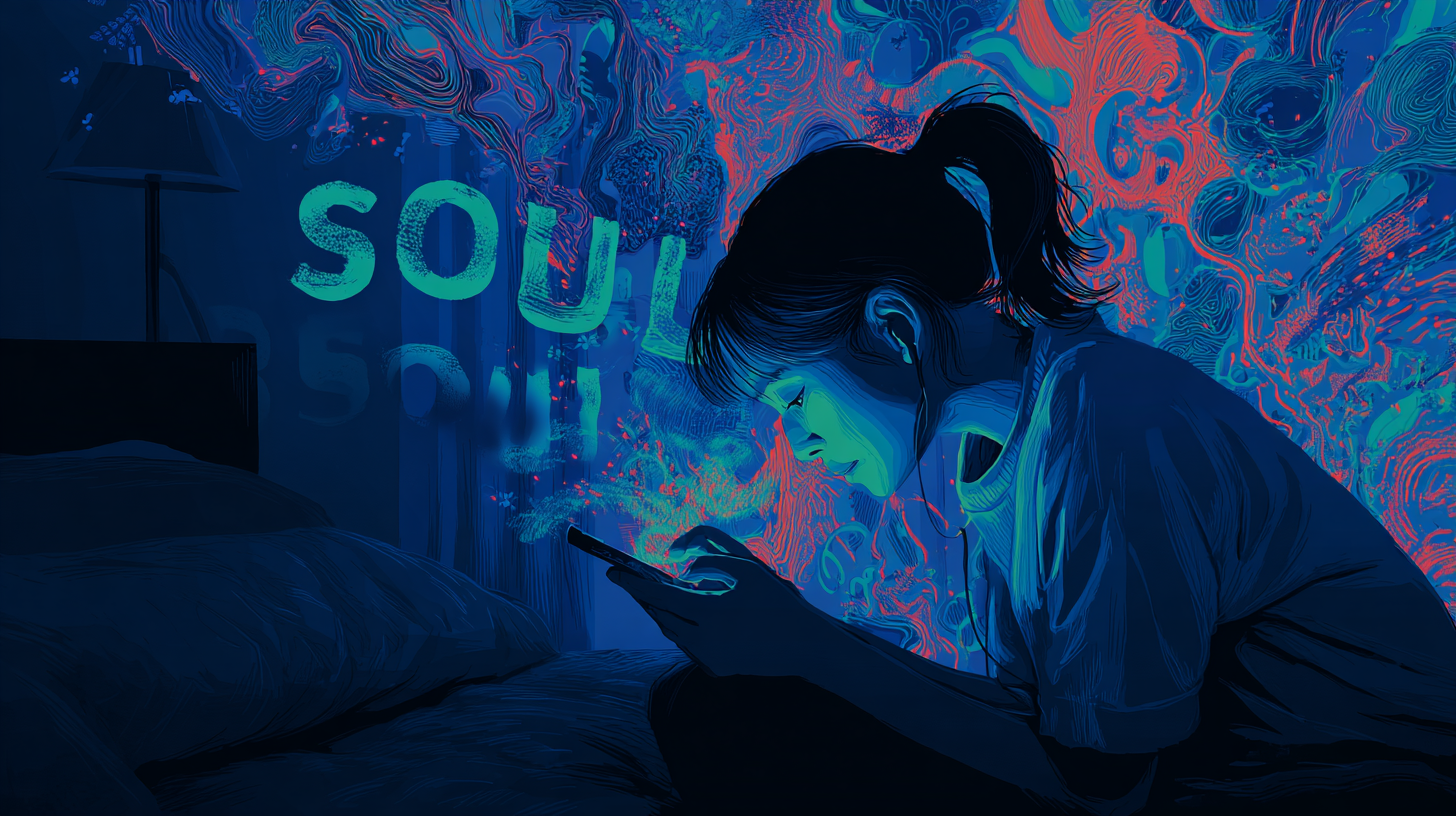
Here's the uncomfortable truth: in many countries, you don't need a license to call yourself a therapist.
In the UK, titles like psychotherapist and counsellor are unprotected. Anyone can use them. A life coach on TikTok can call their program "trauma therapy" and, legally, no one can stop them. Psychologist titles-clinical, counselling, educational-are protected by the Health and Care Professions Council. But the softer, more popular words? They're wide open. MPs and professional bodies have been calling for statutory regulation for years, warning that vulnerable people are being left exposed. Nothing has changed.
In the U.S., the patchwork is even messier. Each state draws its own lines. California, for example, makes it explicitly illegal to practice psychology without a license. But what does that mean when a coach says, "I don't diagnose, I just guide"? Coaches skirt legality by never using the clinical words: no "diagnosis," no "treatment," just "support." It's a game of semantics played in the space between law and suffering.

And then there are the platforms. TikTok has rules against mental-health misinformation that could cause "significant harm". Instagram bans unsubstantiated health claims in ads. But scroll for ten minutes and you'll still find coaches promising to heal trauma, end panic attacks, or fix your attachment style. Enforcement is inconsistent at best, invisible at worst.
This is the loophole economy: a world where coaches insist they're not offering therapy, while selling courses that look, sound, and feel exactly like it. The system hasn't figured out how to police it. Until it does, the burden falls on the people least equipped to carry it-the desperate, the vulnerable, the ones already searching for relief.
When Care Becomes Content, Who Catches the Fall?
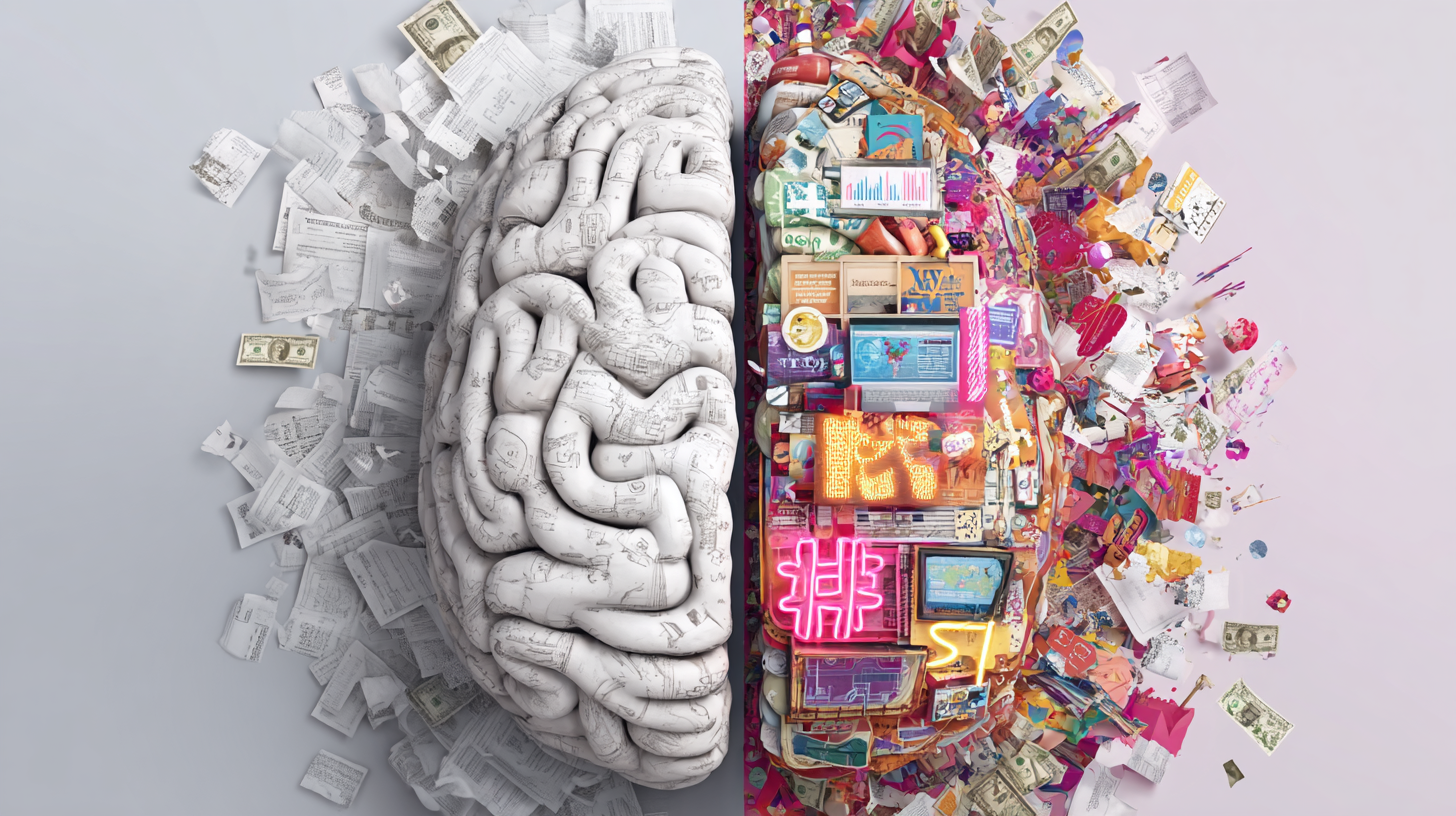
When care becomes content, the first casualty is the safety net. A licensed therapist sits inside a web of guardrails-supervision, crisis protocols, protected titles, complaint routes. A coachfluencer lives on the timeline. If something goes wrong, there's no on‑call supervisor-just a comments section and a refund policy written by marketing.
Why is that a bad thing? If you’re listening to this and asking, isn’t this just a therapist bitter at the success of these people who figured out social media before he did? Let me unpack this a bit.
Scope creep is the quiet hazard.
"I don't diagnose, I don't treat," many creators say-until the copy promises to heal trauma, end panic attacks, or fix attachment wounds. That's not coaching; that's healthcare cosplay. Platforms insist they block harmful mental‑health content and self‑harm promotion, but independent tests still show teens being algorithmically funneled into suicide‑ and self‑harm‑adjacent videos despite new UK safety laws.
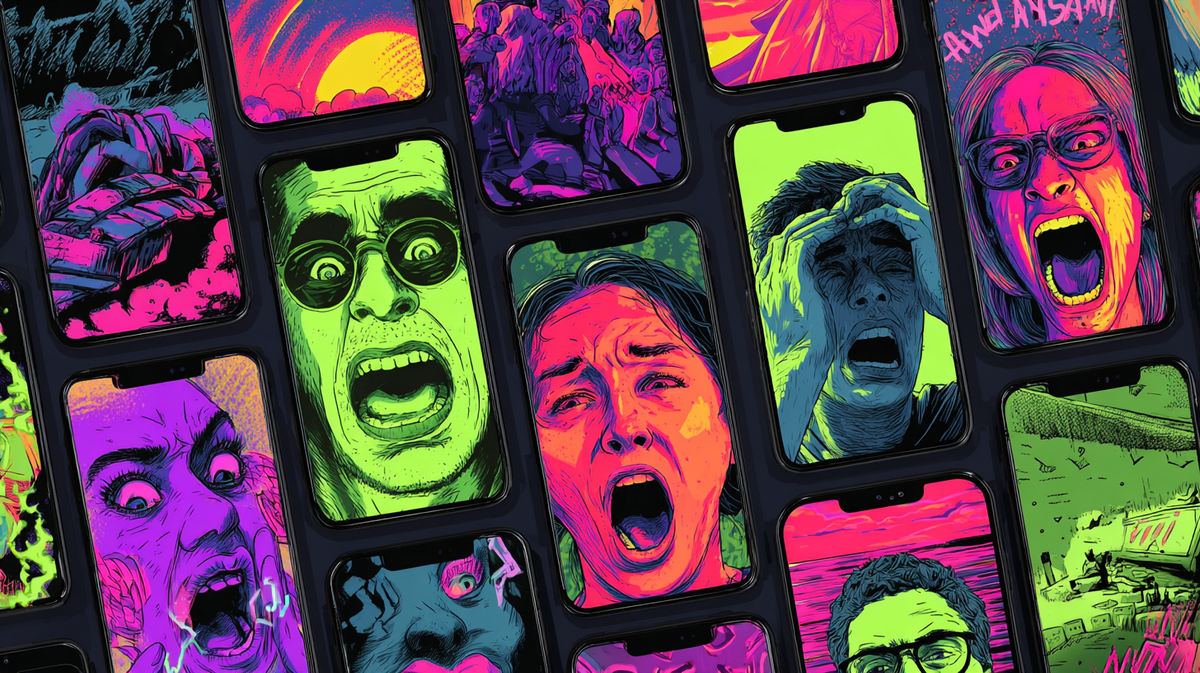
Ofcom's own research has warned that a single search can open a corridor of self‑injury content-especially via image results-underscoring how quickly "supportive" browsing can turn dangerous.
Misinformation is the accelerant
We're not guessing here. Multiple studies and reviews have found that a large share of mental‑health advice on TikTok is inaccurate. A widely cited 2022 analysis concluded that about half of top ADHD videos were misleading. A 2025 PLOS ONE study again found the quality and accuracy of top ADHD clips to be misleading. The cultural result is whiplash: self‑diagnosis surges, symptom lists become identity, and serious conditions get flattened into swipe‑size mantras.
Crisis handling is a coin toss
Ask a coachfluencer: what happens if a participant discloses suicidal ideation on Zoom? In regulated care, there's a protocol. Online, not so much. TikTok's updated community rules now spell out bans on content that promotes self‑harm or disordered eating and promise evidence‑based enforcement-but enforcement is only as strong as the next recommendation spiral, and recent reporting suggests the gap between policy and practice is still wide.
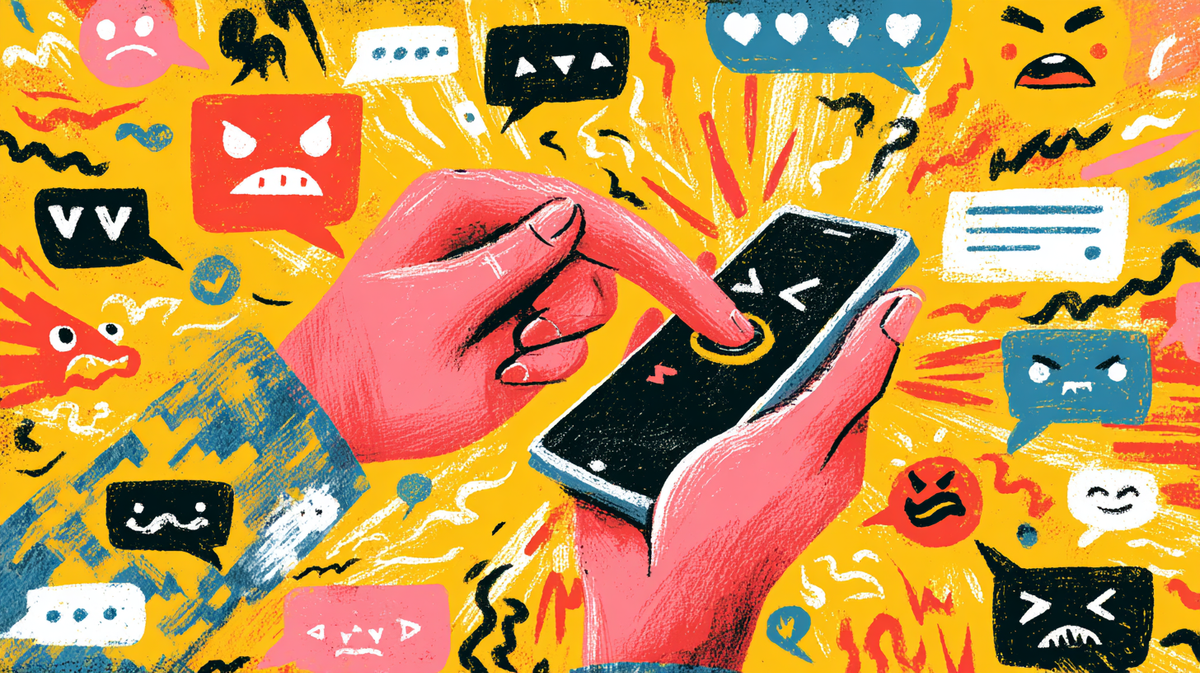
Data & privacy add a second layer of harm
Even licensed digital therapy can get this wrong. In 2023, the U.S. Federal Trade Commission banned BetterHelp from sharing sensitive mental‑health data for advertising and secured $7.8 million in redress after finding the company broke its own privacy promises.
If regulated providers can fumble data at scale, imagine the tracking pixels and lead forms hidden in a coachfluencer's funnel. Meta has tightened 2025 health/wellness ad rules and limited how advertisers can target or optimize using sensitive health signals-good, but hardly a firewall for creators operating outside healthcare compliance.
Advertising claims face a patchy clampdown
In the UK, the Advertising Standards Authority has explicitly warned against unproven anxiety‑treatment claims: ruling against brands and reminding marketers that health outcomes require robust evidence. Yet on social, claims slip through the cracks: "trauma cured," "anxiety gone," "four weeks to nervous‑system regulation." The more desperate the audience, the bolder the promise.
Accountability is asymmetric
Therapists can lose licenses, face regulators, or be sued. A coachfluencer can delete a post, spin up a new handle, and relaunch the cohort by Monday. Laws like California's explicitly prohibit unlicensed psychological practice, but the line‑drawing is murky when creators dodge clinical words and sell "support" instead of "treatment". Meanwhile, the harm: money lost, time wasted, symptoms worsened, lands on the person who came for help.
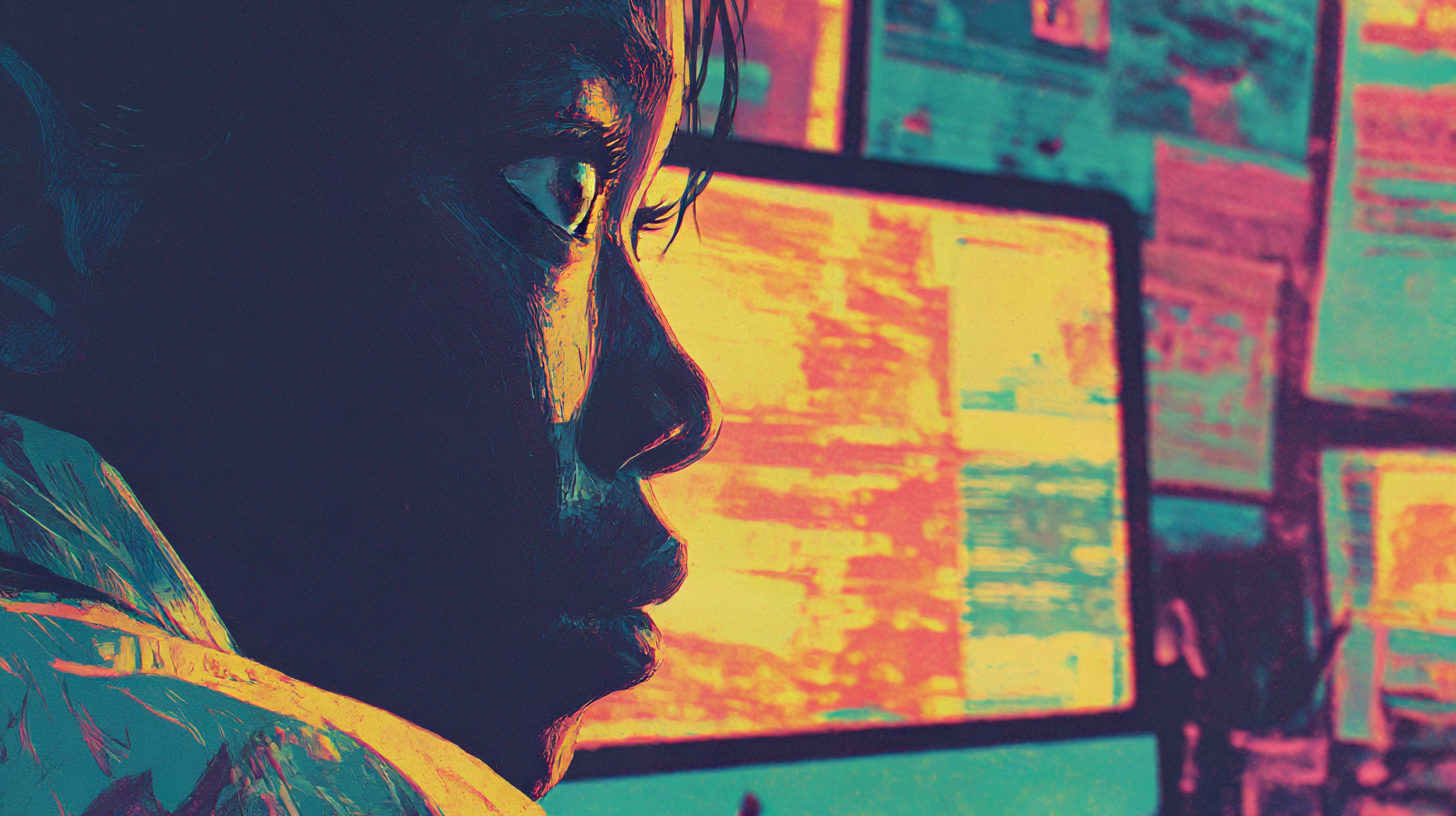
The paradox is brutal: coachfluencers thrive because the system failed to meet demand. But they also multiply risk precisely where people are most exposed: mid‑scroll, midnight, already hurting.
Until the rules, platforms, and payment rails catch up, "healing" will remain a buyer‑beware marketplace with the receipts written in DMs.
The Coaches Who Know Where the Line Is-and Refuse to Cross It
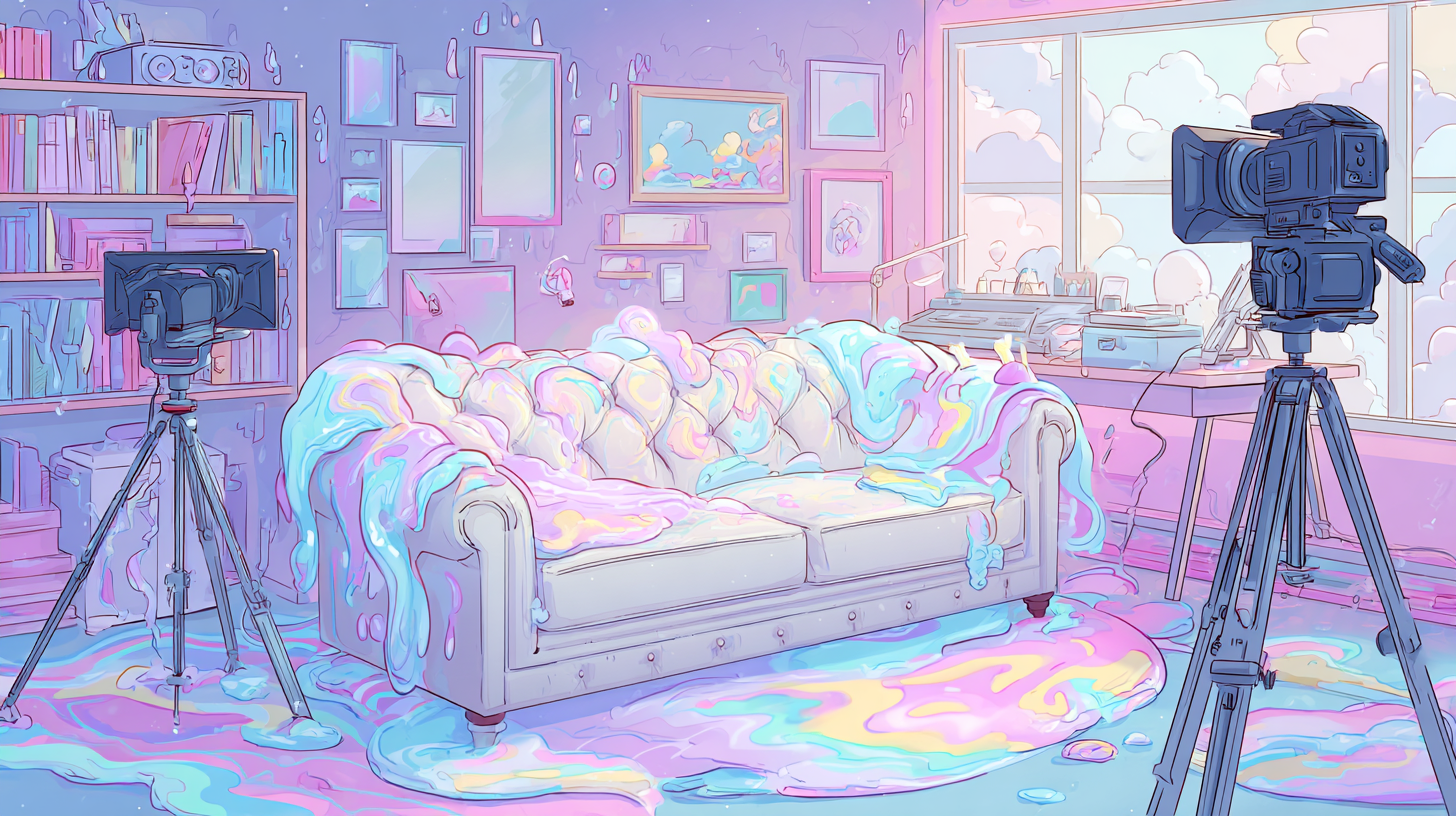
Not every coach is a wolf in therapist's clothing. In fact, some are painfully aware of the danger of overreach-and they're working hard to draw the line.
Ethical coaching bodies spell it out in black and white: do not diagnose, do not treat. The International Association of Trauma Recovery Coaching, for example, makes its members sign off on strict scope-of-practice rules. They're allowed to educate, support, and provide tools for self-reflection. They're not allowed to call it therapy, handle crises, or claim to heal mental illness.
The best coachfluencers are transparent about that boundary. They publish disclaimers. They say, "This is not therapy," and mean it. They maintain referral lists to licensed clinicians. Some even work under clinical supervision to keep their practice accountable. They talk about nervous systems and shadow work, but they don't promise to cure your panic attacks.
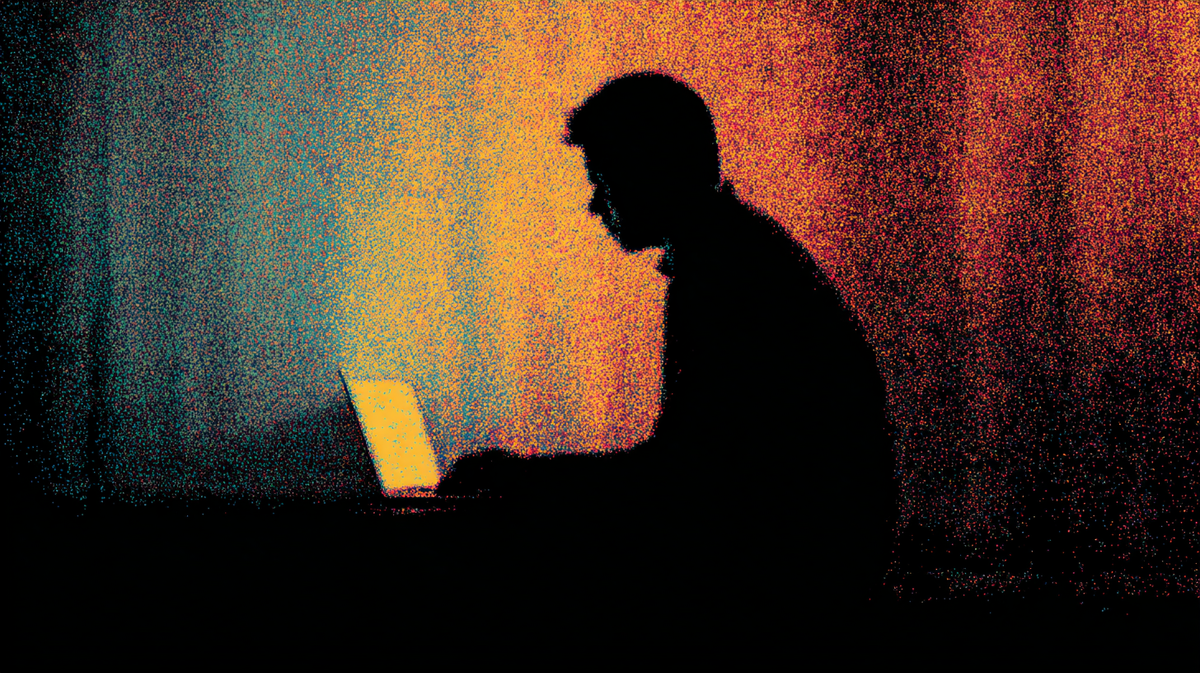
There's also a different kind of safety signal: community over cure. Ethical coaches emphasize peer support, accountability groups, and educational workshops, not "treatment" packages. Their spaces are framed as co-learning, not clinical care. The relationship is one of equals, not expert and patient, but guide and participant.
For readers scrolling in the middle of the night, the trick is learning to spot the bright lines. Is this framed as support or treatment? Does the coach have a clear crisis protocol-or no plan at all? Are they charging for education, or for promises of "healing"?
The grey zone is crowded, but it isn't impenetrable. With the right questions, you can tell the difference between a guide holding space and a self-styled therapist selling salvation.
The Coming Crackdown on Therapy's Black Market
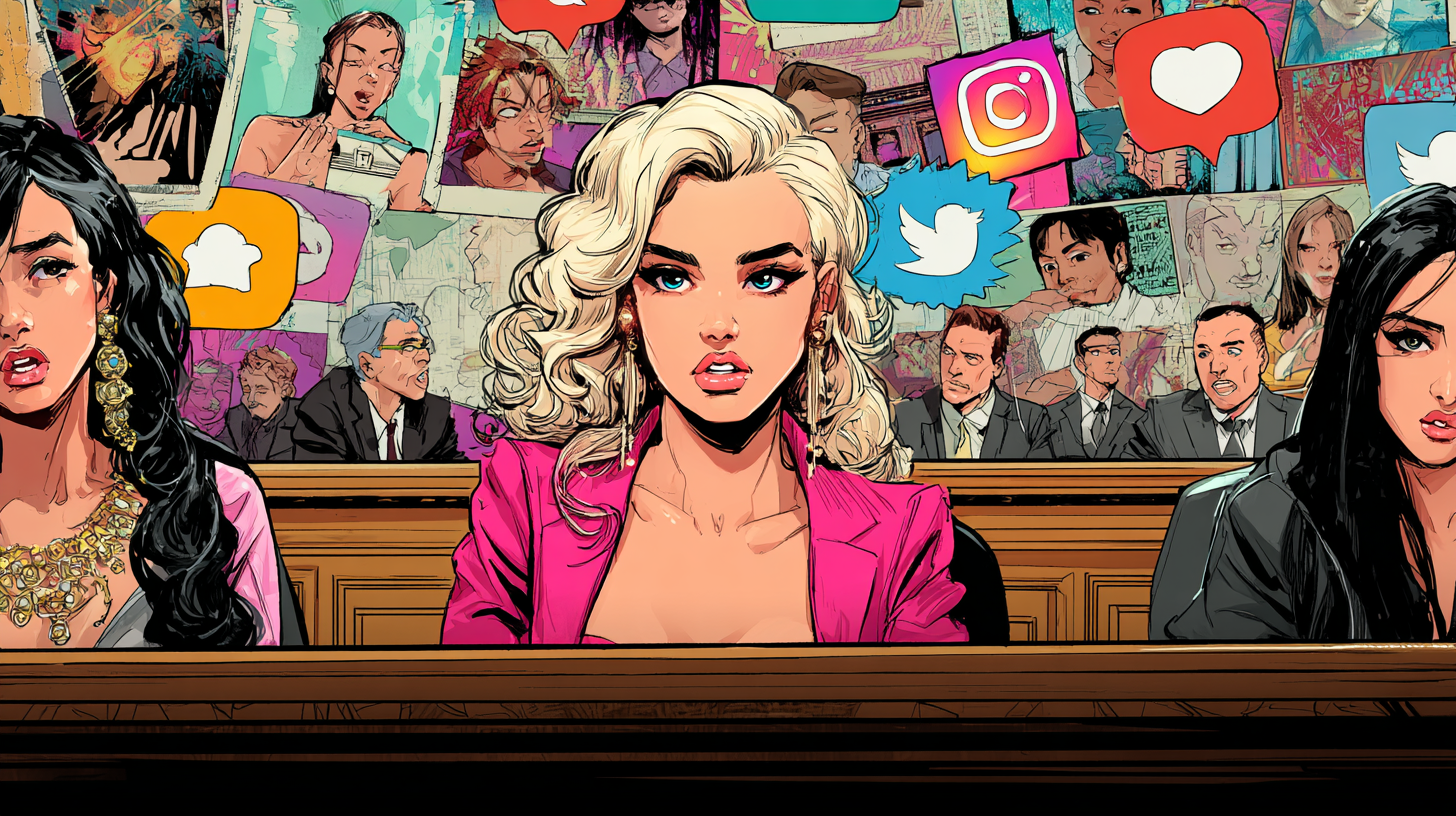
The cracks are showing. Regulators, platforms, even professional bodies are waking up to the reality that mental health is now a marketplace-and one that no longer respects traditional borders.
In the UK, MPs have renewed calls for statutory regulation of psychotherapy and counselling, warning that unprotected titles leave vulnerable people exposed. Ofcom, armed with the Online Safety Act, has new powers to hold platforms accountable for harmful mental-health content, including suicide and self-harm material. The Advertising Standards Authority has begun using AI to scan millions of ads for unsubstantiated health claims-and anxiety "cures" are high on their radar.
Platforms, too, are scrambling. TikTok has overhauled its mental-health policies, banning content that could cause significant harm, and claims it now works with clinical advisors to refine enforcement. Meta has tightened its rules on health and wellness ads, curbing how creators and advertisers can target users with "healing" offers. But enforcement is always reactive: for every account taken down, a new one emerges by Monday morning.
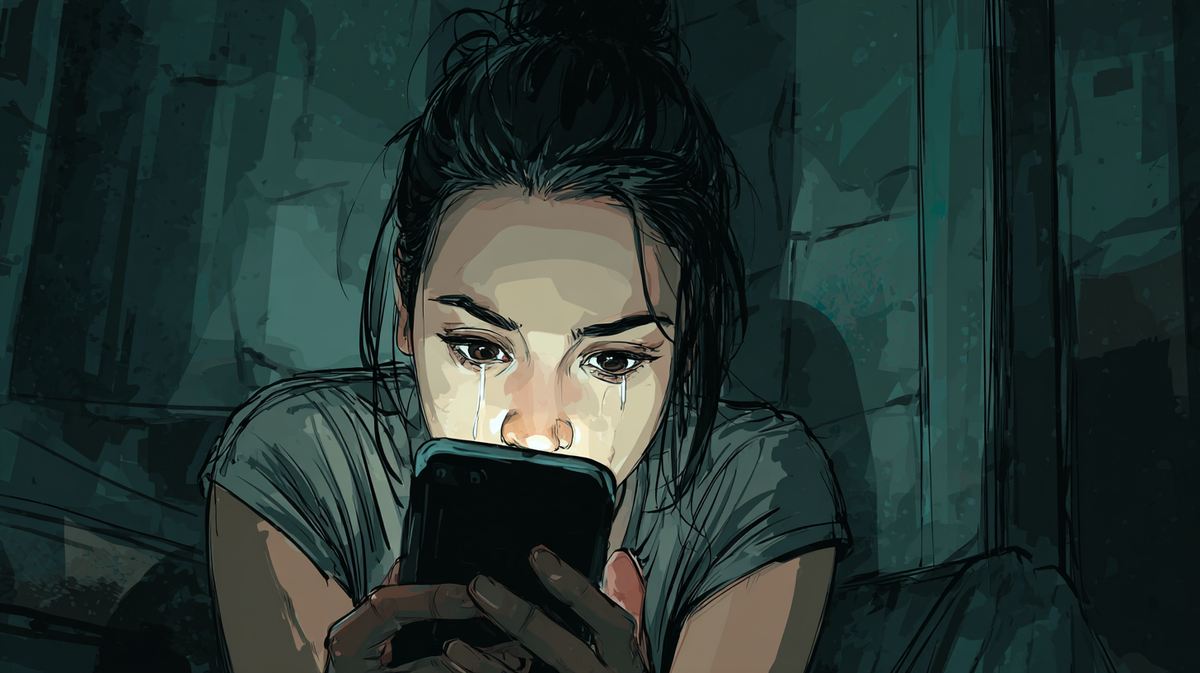
Meanwhile, the coaching industry is scaling faster than regulation. The International Coaching Federation reports post-pandemic growth in both practitioners and revenue. The global life-coaching market is projected to exceed $4 billion by the end of this year. Demand is not slowing; if anything, the system's failings guarantee more people will turn to the grey zone.
The likely future? A hybrid ecosystem. Stricter rules on language and claims. Title protection for therapists. Clearer disclaimers and scope-of-practice requirements for coaches. And a consumer base trained to ask harder questions before clicking "Enroll now."
But until those guardrails are in place, the marketplace of healing will remain what it is now: a blur of hope and hazard, where suffering is both the product and the pitch.
When Healing Becomes Content, Who Pays the Price?
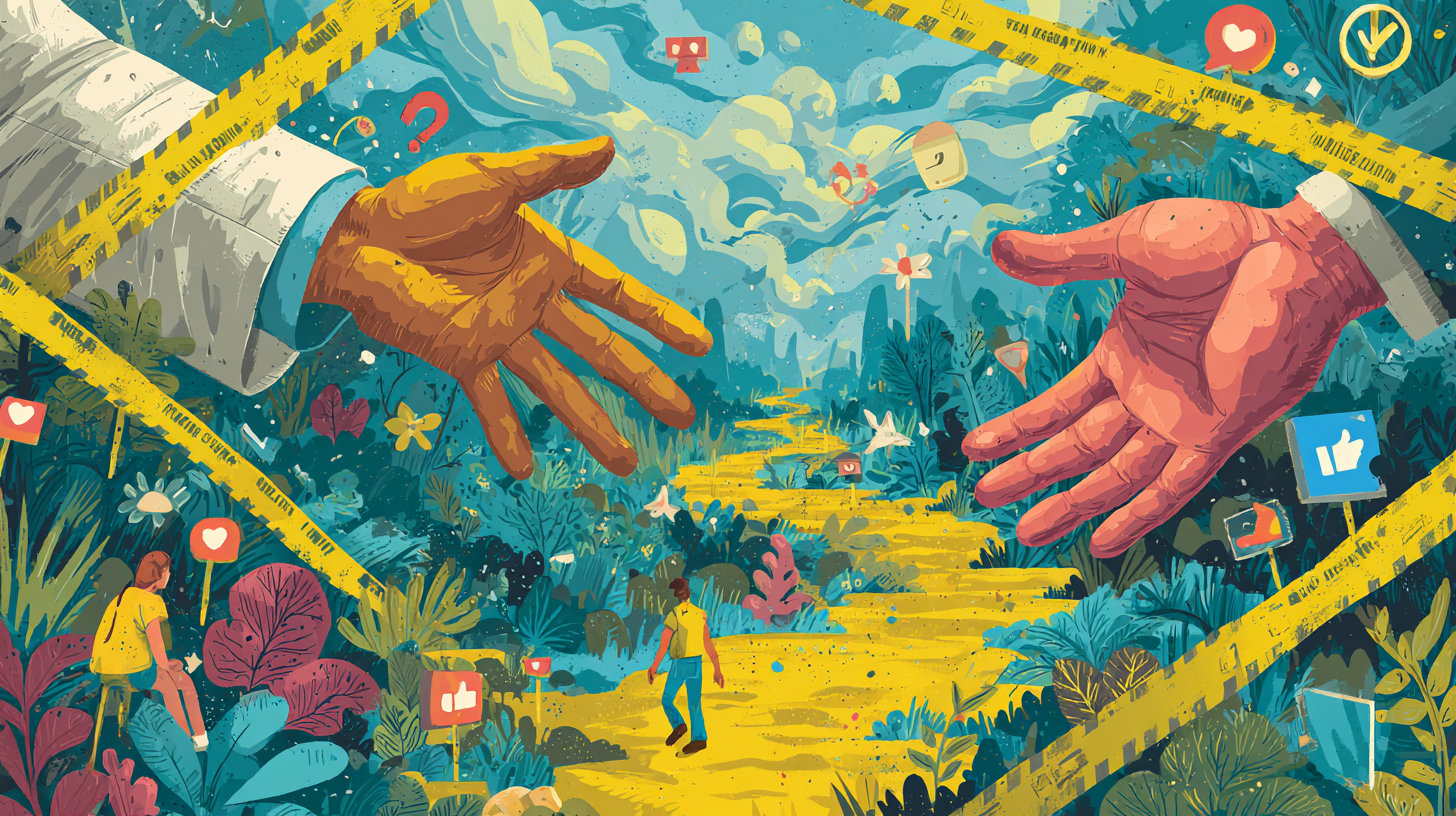
Here's the paradox: coachfluencers thrive because the system is broken. They rise from the cracks left by underfunded services, unaffordable therapy, and waitlists that stretch into months. They are not just opportunists-they are symptoms.
And yet, for all the intimacy of their voice notes and the poetry of their captions, they cannot offer what real therapy provides: accountability, training, a safety net when things collapse. Their power lies in proximity - always in your feed, always one click away. Their danger lies in the same place.
The future of mental health will not be decided in clinics alone. It will be fought in comment sections, shaped by hashtags, and regulated: slowly, and unevenly by governments trying to keep up with an economy of healing they barely understand.
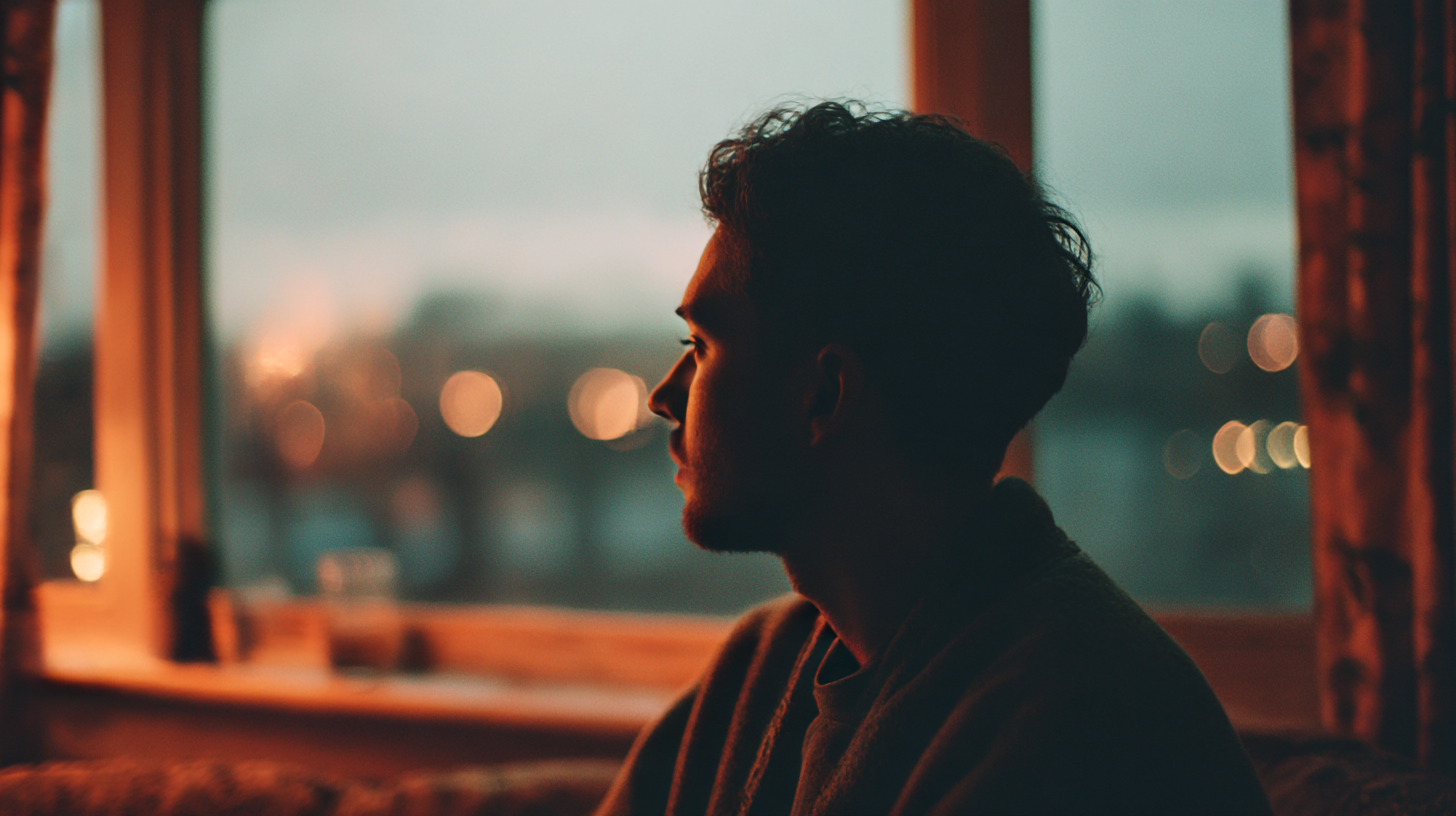
Until then, therapy's black market will keep humming, powered by desperation, performance, and algorithmic reach. For some, it will be a lifeline. For others, a trap.
And the question we're left with is the one regulators haven't yet answered: when healing is sold like content, who carries the cost when it doesn't work?
Things we learned this week 🤓
- 👩💼 Why are millennials dying faster than other groups?
- 🧠 Neuroscientists have been studying rejection to find how our brains change when we're left out.
- 😎 Gullible people fall for scams because they are too emotional, says research.
- 💊 Withdrawal from anti-depressants way worse than previously thought.
Just a list of proper mental health services I always recommend 💡
Here is a list of excellent mental health services that are vetted and regulated that I share with the therapists I teach:
- 👨👨👦👦 Peer Support Groups - good relationships are one of the quickest ways to improve wellbeing. Rethink Mental Illness has a database of peer support groups across the UK.
- 📝 Samaritans Directory - the Samaritans, so often overlooked for the work they do, has a directory of organisations that specialise in different forms of distress. From abuse to sexual identity, this is a great place to start if you’re looking for specific forms of help.
- 💓 Hubofhope - A brilliant resource. Simply put in your postcode and it lists all the mental health services in your local area.
I love you all. 💋













